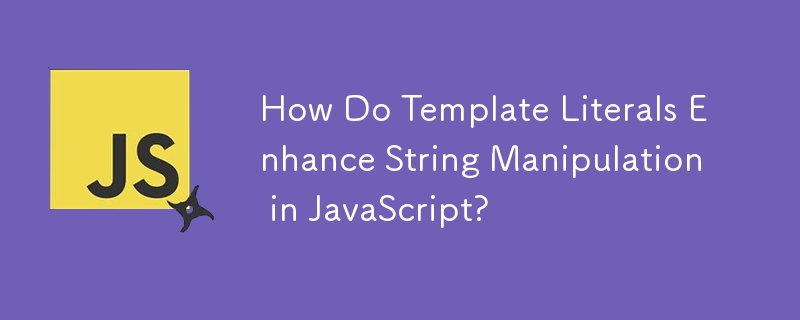

In scenarios where concatenating strings with variables proves cumbersome, a more elegant approach is often desired. This question explores alternative methods to insert variable values into strings.
Traditionally, strings were concatenated with variables using the ' ' operator, as seen in the code snippet provided. However, with the advent of ES6, a new and robust mechanism emerged - template literals.
Template literals, denoted by backticks (`), provide a convenient and flexible way to embed expressions within strings. They allow you to use placeholders (${}) to inject variable values directly into the string. Consider the following example:
const age = 3;
console.log(`I'm ${age} years old!`);In this instance, the variable age is interpolated into the string using the placeholder ${age} within backticks. Template literals offer several advantages:
Therefore, template literals provide a modern and efficient alternative to traditional string concatenation, offering improved expressiveness and flexibility in JavaScript string manipulation.
The above is the detailed content of How Do Template Literals Enhance String Manipulation in JavaScript?. For more information, please follow other related articles on the PHP Chinese website!
 Win10 taskmgr.exe file application error solution
Win10 taskmgr.exe file application error solution
 How to read macro control data in javascript
How to read macro control data in javascript
 How to create a WeChat clone
How to create a WeChat clone
 The server cannot be found on the computer solution
The server cannot be found on the computer solution
 The difference between xdata and data
The difference between xdata and data
 How to execute scheduled tasks in java
How to execute scheduled tasks in java
 How to set both ends to be aligned in css
How to set both ends to be aligned in css
 Introduction to the opening location of win8 running
Introduction to the opening location of win8 running




